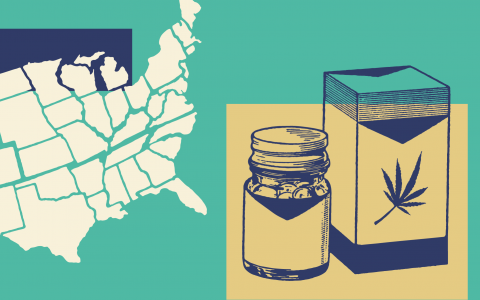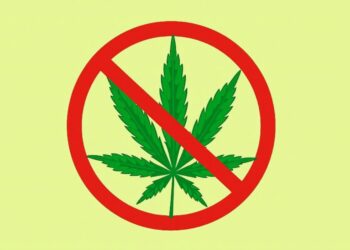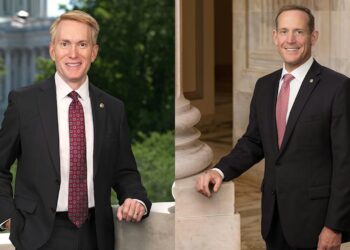The case of a Stage 4 cancer patient in Missouri searched by police for marijuana in his hospital bed sparked a nerve nationwide over the weekend. It also demonstrated the limits of medical cannabis laws in Missouri and other states.
On Wednesday, Mar. 6, pancreatic cancer patient Nolan Sousley of Bolivar, MO, went live on Facebook while local police searched his hospital room at Citizens Memorial Hospital.
Hospital security reportedly called the police after smelling marijuana in Sousley’s room. Sousley’s video of police asking to search his “final day” bag of prescription drugs and personal effects drew massive outrage as well as over 750,000 views, and coverage by USA Today and Time magazine.
Bolivar police did not find cannabis, nor cite or arrest Sousley, who said he did not smoke in his hospital room.
Rather, Sousley said that prior to police being called, he took THC oil capsules in the parking lot, and hit a flavored tobacco cigarette.
Sousley’s encounter riled up online watchers. The latest Quinnipiac polls indicate that 93% of Americans support the legalization of medical marijuana. Last weekend’s viral video tapped into widespread anger over wasted police resources, and a healthcare establishment that continues to stigmatize cannabinoids while profiting from opioids.
An online mob is flooding communications channels at the hospital, the police department, and other Bolivar city departments.
Critics note that Missouri voters legalized medical cannabis last November. That’s true—but legal access might be at least nine months away.
Missouri MMJ Hasn’t Started Yet
“It’s legal in Missouri,” Sousley said to the responding officer in the video. “They just haven’t finished the paperwork. But I don’t have time to wait for that. What would you do?”
Indeed, Missouri Amendment 2 passed resoundingly Nov. 6 with 65% of the vote amid high voter turnout. In some states, medical marijuana initiatives made possession of cannabis with a doctor’s recommendation legal within weeks of state certification of the vote. That didn’t happen in Missouri. Instead, passage of Amendment 2 merely started the clock on a state medical cannabis program that’s yet to get launched.
According to Missouri NORML State Coordinator Dan Viets, prospective patients with a qualifying letter from their doctor could begin applying for a state medical cannabis card as soon as July 4, 2019—the day the state applications may come out.
That means the earliest a patient like Sousley could be legally qualified would be Aug. 5, 2019. That qualification would then entitle him to possess cannabis and consume it in private.
“Patients will be protected in terms of possession for personal use as soon as they receive that qualification from the state,” said Viets.
No Legal Source ‘til 2020
But how does someone like Sousley obtain cannabis? That’s tricky.
He or a caregiver could try to grow up to six plants in an enclosed, locked facility equipped with security devices, as required by Amendment 2.
That might take at least five months—two months to vegetate plants, two months to flower, and one to harvest, dry, and cure. (Assuming you can illegally obtain some cannabis seeds.)
So if Nolan Sousley wants to legally consume medical cannabis, he’s looking at Jan. 1, 2020, at the soonest.
If Sousley wants to buy it from a legal Missouri dispensary, that probably won’t happen until later in 2020.
Amendment 2 calls for dispensary applications to come out by Aug. 3, 2019. The state must process applications within 150 days of receipt. So you’re looking at potentially Jan. 3, 2020 for the first state retail licenses — plus the time it takes to get other typical approvals like local approvals for zoning, conditional use, etc.
In reality, patients like Sousley are already obtaining cannabis outside licensed channels, which amplifies risks like the one in his video.
Hospitals Remain a No-Go Zone
Even after medical cannabis becomes legal, licensed, and available, don’t expect to consume any non-prescription form of it in a hospital. Medical facilities like Citizens Memorial Hospital may legally prohibit cannabis on hospital property, despite the legalities contained in state law.
That’s despite growing clinical evidence of cannabis’ efficacy for cancer-related pain, nausea, vomiting, spasticity, insomnia, anxiety, and depression.
California has had legal medical cannabis since 1996. But in 2019, state medical and adult-use laws remain out of sync with the various policies of doctors, hospitals, and insurers. For one, hospital policies generally do not permit cannabis use on-site. Cannabis is a federal Schedule I drug, which means the federal government considers it as dangerous as heroin and PCP.
Viets said patients in legal states frequently report having to do what Sousley did: Medicate in the parking lot, keep their cannabinoid use ‘off the medical chart,’ and risk having their cannabis products seized by hospital staff or police.
Healthcare providers often cite legal concerns about their federal funding, or issues of smoke or smell, potential drug interactions, and the paucity of cannabis science.
But Viets said US healthcare providers often don’t have written cannabinoid policies, or they fail to publish them and inform patients. Those providers need to write—and widely publish— cannabinoid policies, so consumers know what kind of healthcare services they are buying.
After the Furor
Over the weekend, Sousley asked the online mob to relent on local police and hospital staff, and put their energy toward forcing systemic change.
He stated in a letter to the local newspaper that he hopes the viral video helps advance medical cannabis rights nationwide, and helps ensure the dignity of the sick and dying.
“It is my desire that this entire situation be used for good — politicians should stop trying to limit our right to use cannabis and its derivatives,” he wrote.
“We are all human beings … treat everyone the way you want to be treated.”
Viets notes that police and hospital staff have wide discretion in these matters, and they should exercise that discretion wisely.
“There’s just not a reason to treat anyone the way they did,” Viets said.
Viets said Sousley is fired up by this fight, which might be the last of his life.
“He was strong in his spirits. Physically, he’s not,” Viets said of Sousley. “He hopes that this incident will help to prevent other patients from going through what he suffered.”
















